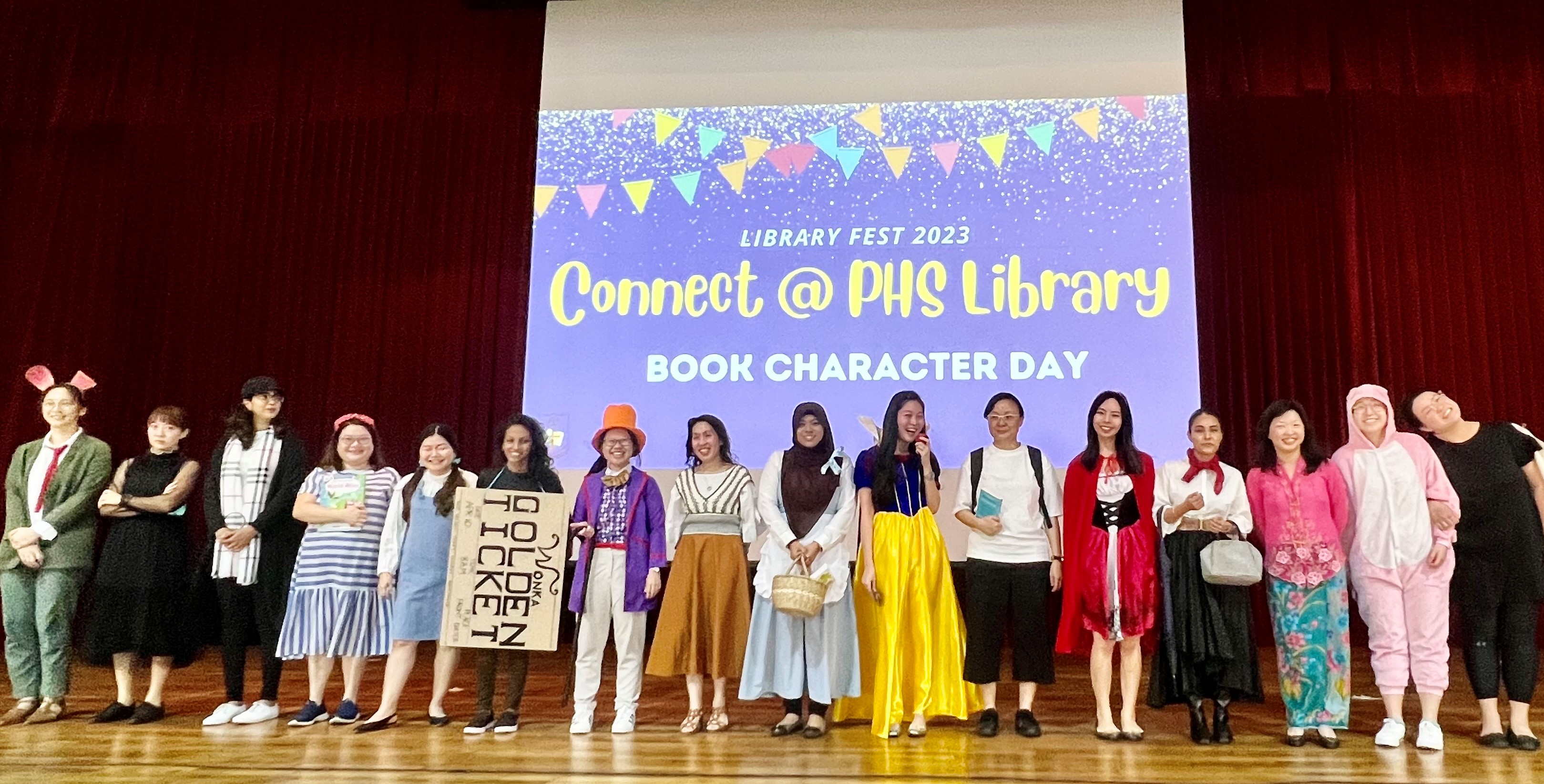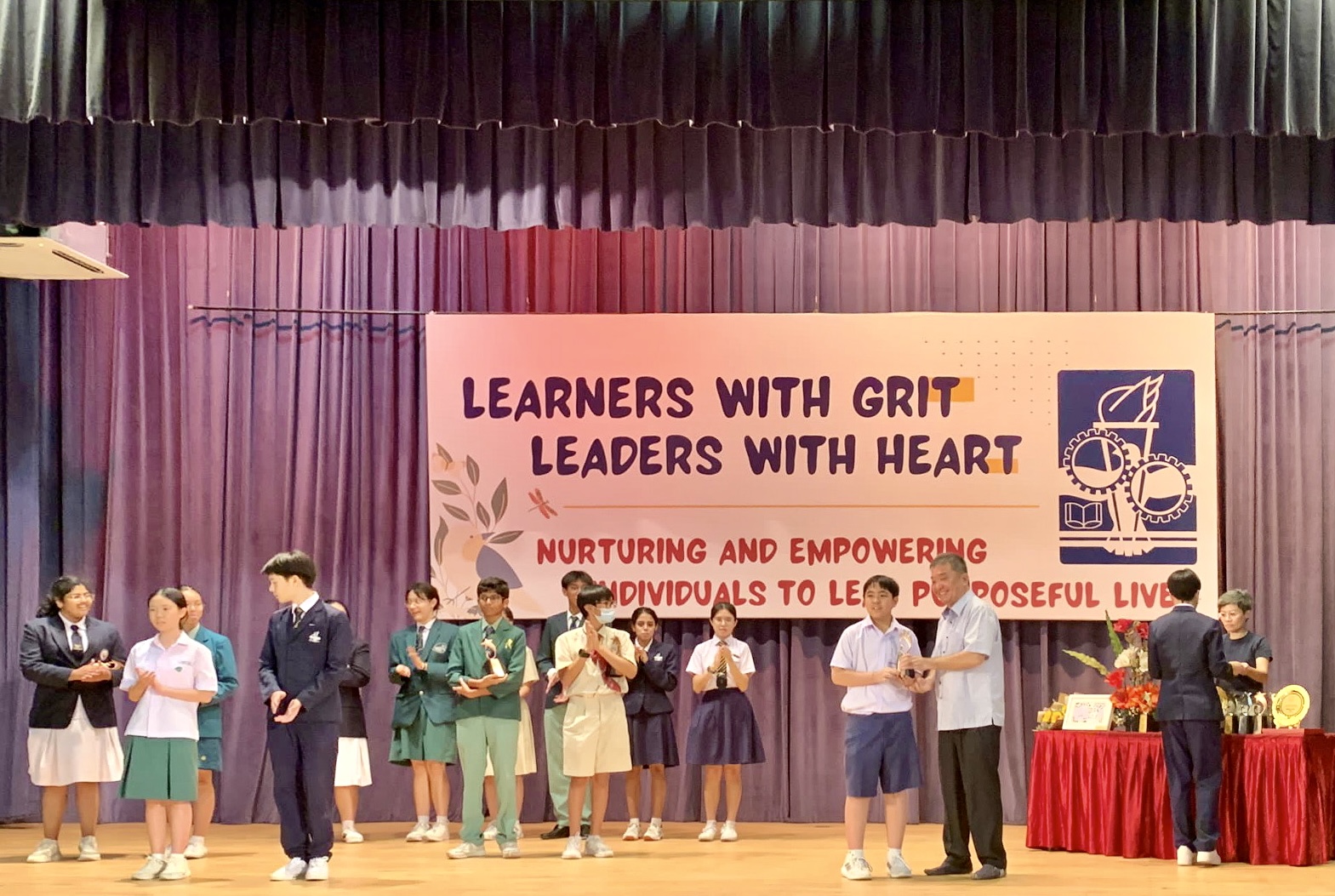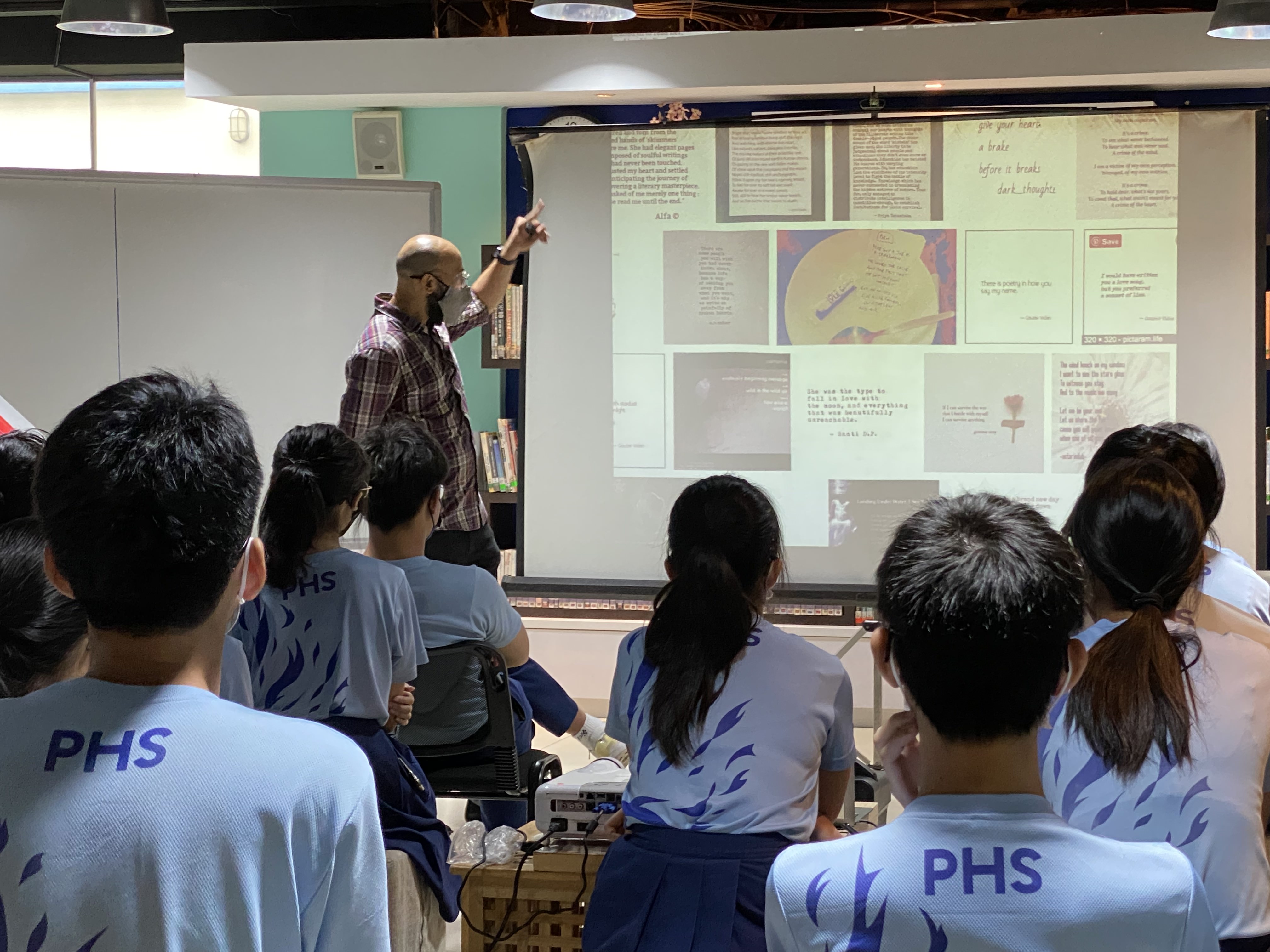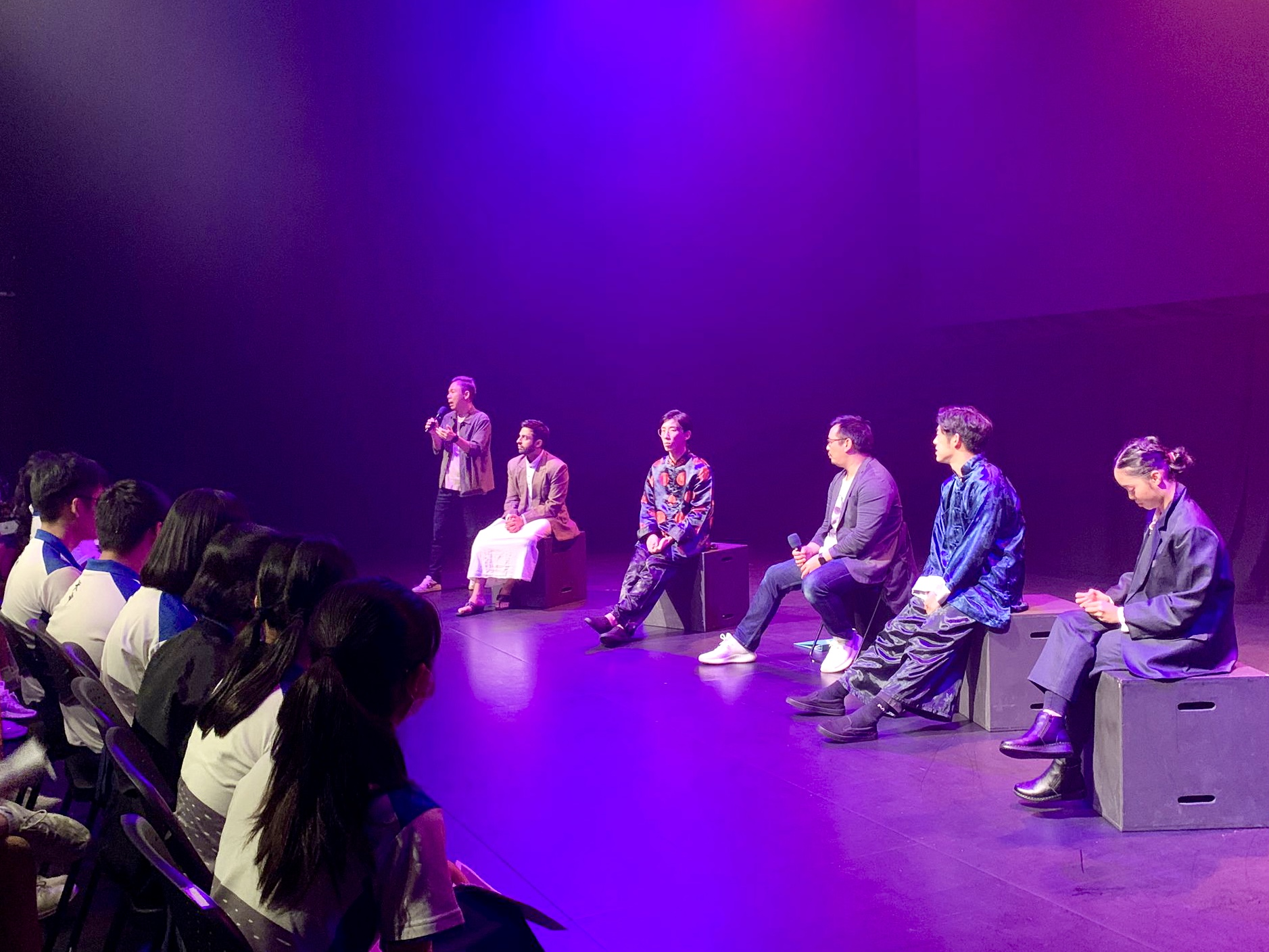English Language and Literature
Our Vision
Every PresHighian a proficient communicator capable of expressing thoughts and feelings with empathy, creativity and impact
Our Approach
In this digital era, we deem it important to develop students’ critical and creative thinking skills. In our English Language and Literature classrooms, we assume the role of facilitators of learning, leveraging technology to craft opportunities for our students to read, view, speak and write.
We introduce our students to a wide array of texts, including multimodal ones, and make our own thinking visible to guide their comprehension. We offer numerous platforms for inquiry, collaboration and group presentations, both in small settings and to larger audiences. Through this approach, students not only feel greater engagement but also gain a deeper appreciation of the nuances of language. The diverse perspectives they encounter enable them to reevaluate their beliefs and biases, fostering empathy.
Students who exhibit a keen interest and aptitude in the language are given opportunities to participate in enrichment programmes and competitions to further develop their passion and stretch their abilities.
Our Programmes
Veritas – Latin for ‘truth’ – is not only a name but is also at the heart of the EL and Literature signature programme. At PHS, where we are ‘Aflame for Truth’, this programme nurtures in every learner a passion for language and a commitment to seeking truth about the world around them. Here, words carry weight, stories shape worlds, and truth is discovered not only in what we say, but how we choose to say it.
In an increasingly polarised world where misinformation blurs the lines of truth, Veritas invites you to pause, question and seek clarity. If you seek to understand perspectives beyond your own and craft your own voice with empathy, insight and care – you belong in Veritas. As a student in Veritas, you will explore the power of language and literature, and nurture your growth in four key focus areas:
1. Oracy and Debate
You will learn to speak with purpose and passion, through classroom debates
and school-wide speech events, and take your voice to the national stage
in competitions like the YMCA Plain English Speaking Award (PESA) and the
National Schools Literature Festival (NSLF) Unseen Debate.
2. Media and Information Literacy
You will sharpen your ability to evaluate and interpret media, exploring current affairs through The Straits Times IN Extensive Reading Programme in school, and tackling national-level challenges like The Straits Times What’s The News? current affairs quiz and the National Library Board (NLB) Prove It! Contest.
3. Creative Writing and Literary Expression
Whether crafting fiction or reciting poetry, you will discover the joy of expression through school competitions like the Flash Fiction competition, and national platforms such as the Queen’s Commonwealth Essay Competition, the National Organ Transplant Unit (NOTU)
Live On Festival Essay Competition, the Singapore Writers Festival (SWF) Writing Challenge and the National Poetry Recitation Competition.
4. Civic, Global and Cross-Cultural Literacy
From visits to the Peranakan Museum to better understand the context of the much-loved Lower Secondary Literature text Emily of Emerald Hill, to supporting charity initiatives such as NLB’s Read for Books, which promotes reading and shares its joy with the less privileged, to international essay competitions like Cambridge Re:think, which fosters critical thinking and invites exploration of thought-provoking and sometimes controversial topics, you will connect learning to lived experiences and emerge with a deeper understanding of the world and your place in it.





